-
About
- About Listly
- Community & Support
- Howto
- Chrome Extension
- Bookmarklet
- WordPress Plugin
- Listly Premium
- Privacy
- Terms
- DMCA Copyright
- © 2010-2025 Boomy Labs

Listly by Umbrella Health Care Systems
Blood sugar, or glucose, is the main sugar found in your blood. It comes from the food you eat, and is your body's main source of energy. Your blood carries glucose to all of your body's cells to use for energy.
Diabetes is a disease in which your blood sugar levels are too high. Over time, having too much glucose in your blood can cause serious problems. Even if you don't have diabetes, sometimes you may have problems with blood sugar that is too low or too high. Keeping a regular schedule of eating, activity, and taking any medicines you need can help.
If you do have diabetes, it is very important to keep your blood sugar numbers in your target range. You may need to check your blood sugar several times each day. Your health care provider will also do a blood test called an A1C. It checks your average blood sugar level over the past three months. If your blood sugar is too high, you may need to take medicines and/or follow a special diet.
https://www.umbrellamd.com/e-visit
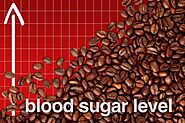
Your blood sugar can rise after you have coffee -- even black coffee with no calories -- thanks to the caffeine. The same goes for black tea, green tea, and energy drinks. Each person with diabetes reacts to foods and drinks differently, so it's best to keep track of your own responses. Ironically, other compounds in coffee may help prevent type 2 diabetes in healthy people.
https://www.umbrellamd.com/e-visit
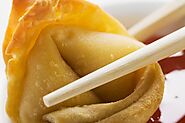
When you dig into a plate of sesame beef or sweet and sour chicken, it isn't just the white rice that can cause a problem. High-fat foods can make your blood sugar stay up for longer. The same is true for pizza, french fries, and other goodies that have a lot of carbs and fat. Check your blood sugar about 2 hours after you eat to know how a food affects you.
https://www.umbrellamd.com/e-visit
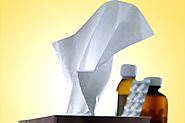
Your blood sugar rises as your body works to fight off an illness. Drink water and other fluids to stay hydrated. Call your doctor if you've had diarrhea or vomiting for more than 2 hours or if you've been sick for 2 days and aren't getting better. Be aware that some medicines, such as antibiotics and the decongestants that can clear your sinuses, can affect your blood sugar.
https://www.umbrellamd.com/e-visit

They're made to help you replenish fluids quickly, but some of them have as much sugar as soda. Plain water is probably all you need for a moderate workout of less than an hour. A sports drink may be OK for longer, more intense exercise. But check with your doctor first to see if the calories, carbs, and minerals in them are safe for you.
https://www.umbrellamd.com/e-visit
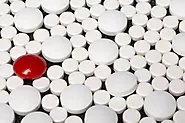
People take corticosteroids, such as prednisone, to treat rashes, arthritis, asthma, and many other conditions. But they can boost your blood sugar, and may even trigger diabetes in some people. Diuretics that help high blood pressure, also called water pills, can do the same. Some antidepressants also raise or lower blood sugar.
https://www.umbrellamd.com/e-visit
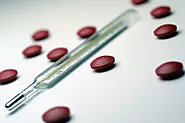
Decongestants that have pseudoephedrine or phenylephrine can raise blood sugar. Cold medicines also sometimes have a little sugar or alcohol in them, so look for products that skip those ingredients. Antihistamines rarely cause a problem with blood sugars. Ask your pharmacist about the possible effects of over-the-counter meds before you buy them.
https://www.umbrellamd.com/e-visit
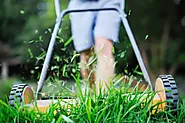
Cleaning the house or mowing the lawn can have an added bonus for people with diabetes: lower blood sugar. Many of the chores you do every week count as moderate physical activity, with plenty of health perks. Make a point of walking around the grocery aisles or parking farther from the entrance to the store. Small amounts of exercise add up.
https://www.umbrellamd.com/e-visit
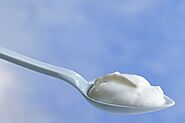
Foods that have healthy bacteria, such as many types of yogurt, are called probiotics. They can improve digestion and also may help you control your blood sugar. Some yogurts have added sugar and fruit, so be careful to count the carbs. Your best choice is plain or light yogurt without extra sugar.
https://www.umbrellamd.com/e-visit
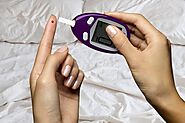
Blood sugar can dip dangerously low during shut-eye for some people with diabetes, especially if they take insulin. It's best to check your levels at bedtime and when you wake up. A snack before bed may help. For some people, blood sugar can rise in the morning -- even before breakfast -- due to changes in hormones or a drop in insulin. Regular testing is important. One option is a continuous blood glucose monitor, which can alert you to highs and lows.
https://www.umbrellamd.com/e-visit
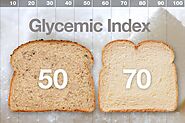
Your daily carb total, spread steadily across the day, is one key to good blood sugar control. Some people also use the glycemic index (GI), a rating of how individual foods raise blood sugar levels. Beans and whole-grain breads and cereals have a lower GI than white bread and regular pasta. Juice has a higher GI than whole fruit. Craving a high-GI food? Eat it along with a lower-GI choice to help control your levels.
https://www.umbrellamd.com/e-visit

Umbrella Health Care Systems provide complete solution for health related problems.
https://www.umbrellamd.com/